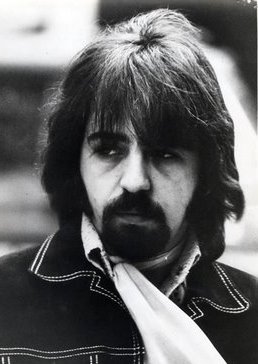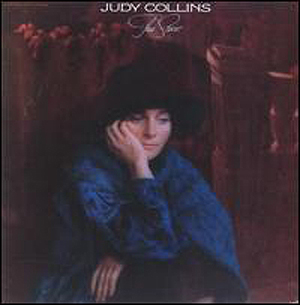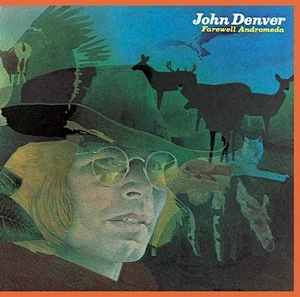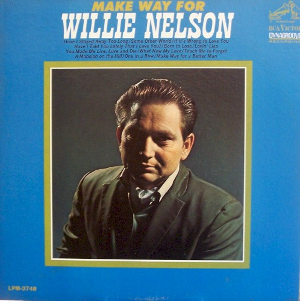
Béla Anton Leoš Fleck is an American banjo player. An acclaimed virtuoso, he is an innovative and technically proficient pioneer and ambassador of the banjo, playing music from bluegrass, jazz, classical, rock and various world music genres. He is best known for his work with the bands New Grass Revival and Béla Fleck and the Flecktones. Fleck has won 17 Grammy Awards and been nominated 39 times.
Trapeze were an English rock band from Cannock, Staffordshire. Formed in 1969, the band originally featured former The Montanas members John Jones and Terry Rowley (keyboards), and former Finders Keepers members Glenn Hughes, Mel Galley and Dave Holland (drums). Jones and Rowley left the band following the release of their self-titled debut album in 1970, with the lineup of Hughes, Galley and Holland continuing as a trio. After the release of Medusa later in 1970 and You Are the Music... We're Just the Band in 1972, Hughes left Trapeze in 1973 to join Deep Purple.

Clarence White was an American bluegrass and country guitarist and singer. He is best known as a member of the bluegrass ensemble the Kentucky Colonels and the rock band the Byrds, as well as for being a pioneer of the musical genre of country rock during the late 1960s. White also worked extensively as a session musician, appearing on recordings by the Everly Brothers, Joe Cocker, Ricky Nelson, Pat Boone, the Monkees, Randy Newman, Gene Clark, Linda Ronstadt, Arlo Guthrie, and Jackson Browne among others.
Eric Weissberg was an American singer, banjo player, and multi-instrumentalist, whose most commercially successful recording was his banjo solo in "Dueling Banjos", featured as the theme of the film Deliverance (1972) and released as a single that reached number 2 in the United States and Canada in 1973.

Buffalo Springfield is a compilation album released on Atco Records in 1973. It is the fifth album by rock band Buffalo Springfield, and their second compilation. It was assembled by the label well after the band had broken up at a time when Crosby, Stills, Nash & Young were quite popular and had not released any new material as a group for over two years, with their 1974 reunion tour eight months away. It features a nine-minute extended version of the song "Bluebird" by Stephen Stills, only available elsewhere on the Warner Special Products LP compilation "Heavy Metal – 24 Electrifying Performances", released in 1974. It has never been issued on compact disc and is currently out of print.

"Dueling Banjos" is a bluegrass composition by Arthur "Guitar Boogie" Smith. The song was composed in 1954 by Smith as a banjo instrumental he called "Feudin' Banjos"; it contained riffs from Smith, recorded in 1955 playing a four-string plectrum banjo and accompanied by five-string bluegrass banjo player Don Reno. The composition's first wide-scale airing was on a 1963 television episode of The Andy Griffith Show called "Briscoe Declares for Aunt Bee", in which it is played by visiting musical family the Darlings, along with Griffith himself.

True Stories and Other Dreams is the ninth studio album by American singer and songwriter Judy Collins, released by Elektra Records in 1973. It peaked at No. 27 on the Billboard Pop Albums charts.
The Tarriers were an American vocal group, specializing in folk music and folk-flavored popular music. Named after the folk song "Drill, Ye Tarriers, Drill", the group had two hit songs during 1956-57: "Cindy, Oh Cindy" and "The Banana Boat Song." The two singles became US Top Ten hits and peaked at No. 26 and No. 15 respectively in the UK Singles Chart.

William Bradford "Bill" Keith was a five-string banjoist who made a significant contribution to the stylistic development of the instrument. In the 1960s he introduced a variation on the popular "Scruggs style" of banjo playing which would soon become known as melodic style, or "Keith style". He was inducted into the International Bluegrass Music Hall of Fame in 2015.
Ratchell was an American rock band formed by former Steppenwolf guitarist Larry Byrom. The lineup also included bassist Howard Messer, guitarist Pat Couchois, and drummer Chris Couchois. The band released two albums on Decca Records: Ratchell in 1971 and Ratchell II in 1972.

Farewell Andromeda is the seventh studio album by American singer-songwriter John Denver, released in June 1973. The LP made Billboard's Top 20, reaching No. 16, with three singles subsequently released: "I'd Rather Be a Cowboy" [#62 POP, #25 AC], "Farewell Andromeda" [#89 POP, No. 20 AC] and "Please, Daddy" [#69 POP, No. 69 C&W].

"Oh, Pretty Woman", or simply "Pretty Woman", is a song recorded by Roy Orbison, written by Orbison and Bill Dees. It was released as a single in August 1964 on Monument Records and spent three weeks at number one on the Billboard Hot 100 from September 26, 1964, the second and final single by Orbison (after "Running Scared" to top the US charts. It was also Orbison's third single to top the UK Singles Chart.

Make Way for Willie Nelson is the fifth studio album by country singer Willie Nelson.

"Travelin' Prayer" is a song written and performed by singer Billy Joel, and released as the third US single from his 1973 album Piano Man as its opening track. The song is "urgent" and "banjo-fueled". It reached number No. 77 on the Billboard Hot 100 and No. 34 on the Adult Contemporary chart in 1974. It was a slightly bigger hit in Canada, where it reached No. 61.

Helen Reddy is the second studio album by Australian-American pop singer Helen Reddy, released on November 8, 1971, by Capitol Records. Reddy's selections include tracks by singer-songwriters Carole King, John Lennon, Randy Newman, and Donovan. It debuted on Billboard magazine's Top LP's chart in the issue dated December 4, 1971, and had a seven-week chart run in which it got as high as number 167. On March 29, 2005, the album was released for the first time on compact disc as one of two albums on one CD, the other album being I Don't Know How to Love Him, Reddy's debut LP that originally came out in the spring of 1971.

Doug Sahm and Band is the debut solo album of American singer-songwriter Doug Sahm. In 1972, after leaving the Sir Douglas Quintet, Sahm moved to Austin, Texas. He was signed by Jerry Wexler to the newly opened country music division of Atlantic Records, and started the album sessions by October 1972. It featured appearances by Bob Dylan, Dr. John, David "Fathead" Newman, Flaco Jimenez, David Bromberg and Kenny Kosek.
Norman Saleet is an American songwriter, musician, and actor. He is best known for writing Air Supply's 1981 hit "Here I Am". The song was chosen for the band by record producer Clive Davis.

Where Are You Going is a 1973 album by Shirley Horn.
Stephen Arnold Mandell was an American bluegrass guitarist and banjoist. Most notably, he is known for the 1973 instrumental hit "Dueling Banjos", recorded in duo with Eric Weissberg and was awarded a Grammy.

Rock & Roll Is Here to Stay! is the debut album by American doo-wop and rock & roll group Sha Na Na, issued in 1969 and reissued in 1973.














